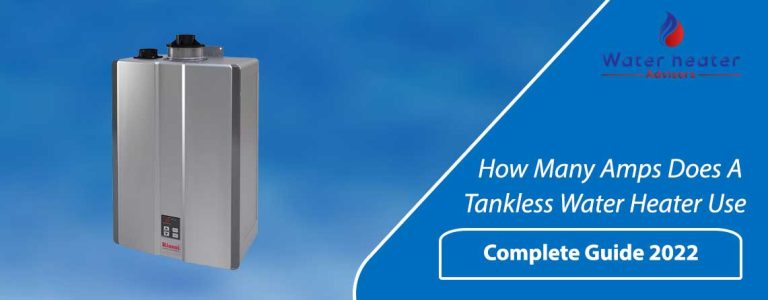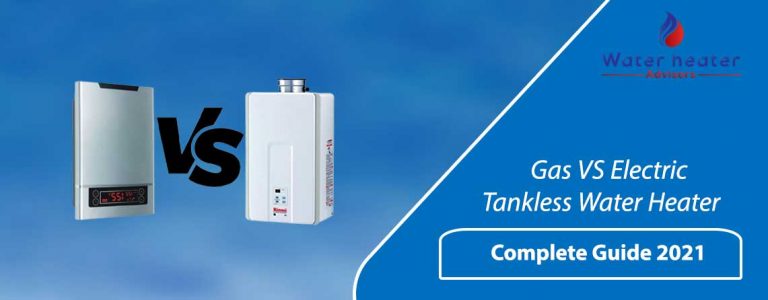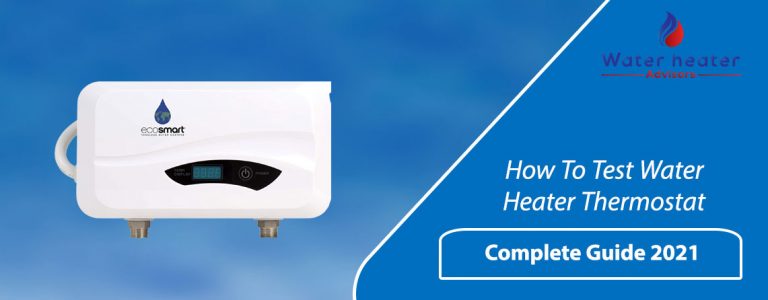How Long Does It Take For A Water Heater To Heat Up? Complete Guide 2021
Hot showers are one of the most idyllic luxuries of life that we can’t imagine living without. A long hot shower energizes you on a chilly, lazy morning and soothes your body and muscles after a long, arduous day.
Unfortunately, standard fixtures don’t generate warm water on their own. On the other hand, electric tankless units are incapable of creating a huge volume of water to meet your whole house needs.
Water heaters take some time to turn extremely cold water into impeccably hot water so that you can enjoy a long, relaxing bath. However, all heaters are different, so homeowners need to know how long does it take for a water heater to heat up.
They are available in various sizes, but the most common one is 40 gallons. The larger the unit, the longer it will take to warm up the water. If you want to run multiple applications at the same time, you will need a powerful machine.
So, how long does it take for a hot water heater to heat up after installation once the water reaches it? While several aspects influence the time it takes to reheat the water.
In this short guide, we will explain you everything you need to know about water heating machines and how long does it take for a water heater to heat up 50 gallon.
How Long Does It Take For A Water Heater To Heat Up?
They come in several sizes, types, and fuel sources. All of these aspects have an immense influence on how long does it take to heat a 40 gallon water heater.
Gas Heaters:
They are considered the most effective way to heat the water in bigger houses. Gas is one of the most popular and favorite fuel types. Its biggest advantage is that it is affordable and energy-efficient so that you can save a lot of dollars.
Additionally, they are equipped with burners or flames to heat the water that is located at the container’s bottom. Their recovery rate is higher than other types of units.
If the heater has a 40-gallon tank, it will take solely 30 to 40 minutes to heat the water. However, if the tank size is 80-gallon, it will take 60 to 70 minutes.
Tankless Gas Or Electric Heaters
If you don’t want to wait for a prolonged duration to obtain water, a tankless machine is optimal. They provide you never-ending water on-demand because they don’t have a boiler.
They are available in diverse sizes and mostly are suitable for small households. These cutting-edge appliances take less than a minute to supply you with seamlessly hot water.
Solar Heaters
They are fueled by the sun and are linked with a traditional electric device. That’s why; they take nearly 20 to 60 minutes to deliver hot water.
If your heater is only powered by the sun, then on a cloudy day, you will have to wait for a long time to acquire water. However, on a sunless day, you can anticipate getting no water at all.
Electric Devices
They are less efficient and have a longer recovery rate than gas appliances. They use electric heating components that are placed inside the container. A 40-gallon electric unit can take up to 60 to 80 minutes, and an 80-gallon tank can take around 120 minutes to heat the water.
Heat Pump Heaters
The heat pump or hybrid heaters rely on the incoming electricity to transfer the heat around the heater and don’t use direct heating. Therefore, they are more energy-efficient than the electric devices.
Moreover, the latest technology is integrated into them, so you get multiple energy-saving settings, including a hybrid and high-demand mode.
The hybrid mode consumes a minimal amount of energy, enhances heating time, and takes at least 120 minutes to heat up. On the other hand, the high-demand mode uses more energy, decreases heating time, and fills the whole tank within 60 to 80 minutes.
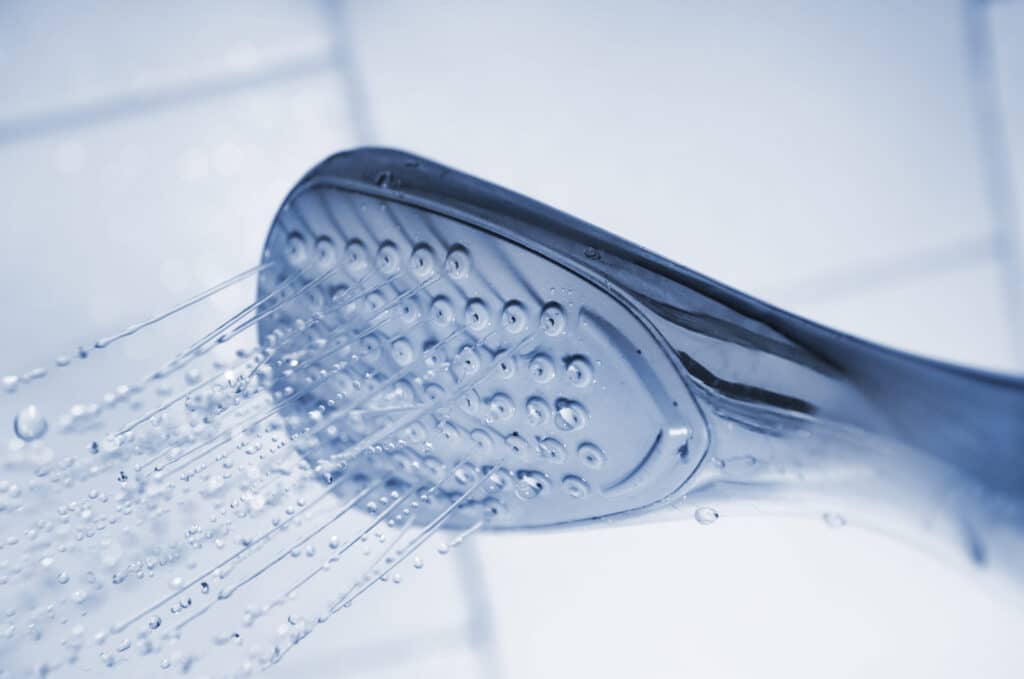
Does Your Water Heater Work Slowly?
To figure out your water heater’s flow rate, you need to use a formula that contains only two variables.
Heater Boiler Size + Heat Input Rate = Available Warm Water
Just for a second, deliberate about a tiny point of use or RV tankless device. A lower amount of heat is applied to this type of heater to get warm water than a whole-house machine.
However, they heat water quickly due to the smaller size of the container. The easiest way to find out the appliance’s recovery rate is to apply some standard dimensions used by numerous plumbers in the industry.
Use the peak usage hours to calculate the water flow rate. Peak usage signifies how much amount of water is required and how much amount of water a unit will need to create.
If it can supply sufficient water during peak hours, it can efficiently handle the rest of your needs. According to research, a water heating system should generate 20 GPM at 140 degrees F for two individuals. It means it should produce 40 gallons for showers and baths only.
If you have a family of four folks, include an additional 20 GPM for showers, 10 GPM for dishwashing, and 20 GPM for laundry. The total volume of hot water a heater should produce for a medium-sized family is 90 GPM.
If you intend to utilize this amount of water every day, you should buy a powerful heater that can create 50 or more GPM. Furthermore, you can take out roughly 70% of available hot water from the heater.
It means if you have a unit that can produce 50 GPM, then you will be able to obtain only 35 GPM. If your hot water demand is 90 GPM, you need the combo of deposited water and water traveling into the appliance before running out of water.
This calculation demonstrates that if you wash utensils, do laundry, and take shower at the same time, you will run out of water very quickly. The only solution to this problem is: buy a bigger heater or replace your existing tank-storage machine with a tankless device.
Why Does It Take So Long For The Water Heater To Heat Up? (Major Reasons)
Over time, your machine will take a while to warm up the water. Before troubleshooting the water delivery problem, you must know what the root cause is.
Sometimes, various factors can slow down the water delivery process. But if it happens ahead of time, check the following factors:
Distance From Heater
The biggest cause you are forced to wait for hot water to flow from a fixture is the water has to travel a significant distance from the unit to the tap or sink.
For instance, if your device is situated in the attic or basement, it can take a few seconds for the water to reach the sink in your kitchen or bathroom.
If it flows through various pipes before it gets to the sink, cold water will come out first, and then the hot water will flow. In this way, a lot of water will be wasted.
Faulty Device
If your appliance used to warm water instantly, but now, it’s taking a long time to heat water or you are running out of water quickly, you should blame the faulty machine.
Many units have a lifespan of around 10 to 12 years. If your unit’s expected life is coming to an end, it could develop some issues or might breakdown completely.
If it is not working efficiently, you should immediately hire the services of a professional so that he can come to inspect and troubleshoot the issue.
Fixtures With Lower Flow Rate
The volume or flow limit also subsidizes water delay. Many faucets have a low flow rate and some come with a volume restrictor. These devices decrease the water amount that travels through that faucet.
Their benefit is that they help you save water and money. When the water flows at a slow rate, you will have to wait for a while to get it. The delay can be longer if there is another issue, such as the heater is out of order or placed at a distance.
Large-Sized Tank
The heater’s tank size is the primary thing that you have to consider while determining how long does it take for a 30 gallon water heater to heat up. A high volume of water will take a long time to reach your preferred temperature.
Tankless units work differently than tank-storage devices because they don’t have a tank. So, they supply unlimited water whenever you need it.
Energy Source
The fuel type also affects how long for hot water heater to heat after reset. The propane or gas-fueled units work faster than electric appliances. The reason is, the burners are capable of reaching higher temperatures quicker than electric heat exchangers.
Currently, heat pump heaters are very popular because they strike a balance between gas and electric machines. They are highly energy-smart and work faster.
Water Currently In Pipes
Another reason how long does it take for a tankless water heater to heat water is that the water is already present in the pipes.
When you activate the tap, the water instantly starts flowing from it, but it won’t arrive from the heater itself. Instead, the water that is already present in the pipes will come to the faucet first. That water might be cold or slightly warm.
External Temperature
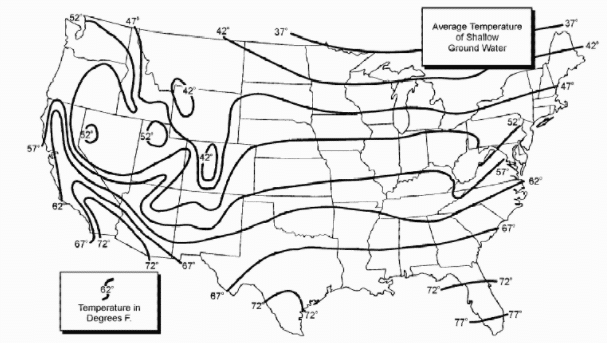
If your device is functioning perfectly, but the outdoor weather is chilly, it could still struggle to deliver hot water faster. If you live in a colder country or state where the temperature drops to -2 or below, then you may have experienced this problem earlier.
When the external weather is cold, the groundwater will also be cold. It means your unit will have to work harder to heat the water to the desired temperature of 120 or 150 degrees F. Once the heated water begins to flow through the boiler to the tap, the cold pipes in the house can make it chilly again.
Size And Diameter Of The Pipes
The water pipes’ diameter and size also contribute to the issue of water delivery. If the pipes are larger, then, of course, water will take longer to come out of the faucet.
Besides, the pipes’ thickness affects the quality of hot water. Metal pipes are thicker, so they pull the heat from water as it flows through them, so you will get cooled water.
Sediment Accumulation
The sediment accumulation can severely impact your device’s effectiveness. The groundwater has dissolved minerals in it, such as magnesium.
However, many regions have hard water that contains a huge amount of minerals. Minerals present in the water can accumulate at the tank’s bottom.
Over time, it leaves a small space for water in the container. The sediment buildup will restrict the reservoir’s ability to store and heat water.
Tips To Get Water Instantly
Pipes Insulation
Adding insulation around the pipes can significantly lower the heat loss as water flows to the fixture. It will keep the water temperature inside the pipes 2 to 4 degrees higher and prevent mold growth.
Will insulation help you get water faster? NO. But it will reduce the waiting time for warm water at the faucet and decrease your electricity bills.
Install Higher Flow Rate Fixtures
If your faucets have a low flow rate, you can replace them with fixtures with a higher flow rate. The water heater flow rate is calculated in GPM, which notifies you how much water will come out of the tap in sixty seconds.
By replacing these fixtures, you can reduce water usage and bills. The fixtures with a low flow rate will take the same amount of time to deliver the water, but you will be getting more water during that specific time.
Install A Recirculation Pump
For many households, the perfect solution for late water delivery issues is deploying a recirculation pump. They circulate the idle water back to the unit, so it is forever available at all fixtures of your residence. It reduces the waiting time and also saves energy, money, and water.
Conclusion:
Overall, there is a device obtainable for everyone that can fulfill your specific hot water needs perfectly. Whether it’s a conventional tank-style, tankless, or heat pump heater, determine your requirements before buying the one.
How long does it take for a water heater to heat up and how long does it take for hot water to come back depends on various factors. Gas and propane-powered units supply hot water faster than electric ones.
But, sometimes, a malfunction or sediment buildup can increase the recovery rate significantly. In that case, you should contact an expert for heater replacement or flush your heater.

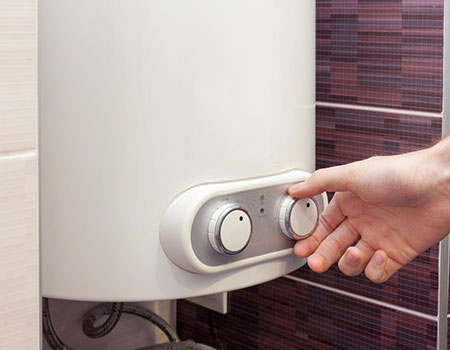
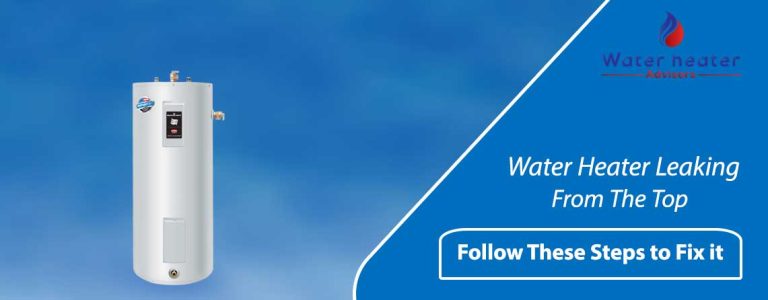
![How To Clean Sediment From Water Lines? [6 Productive Ways]](https://waterheateradvisors.com/wp-content/uploads/2021/10/How-To-Clean-Sediment-From-Water-Lines-768x300.jpg)

